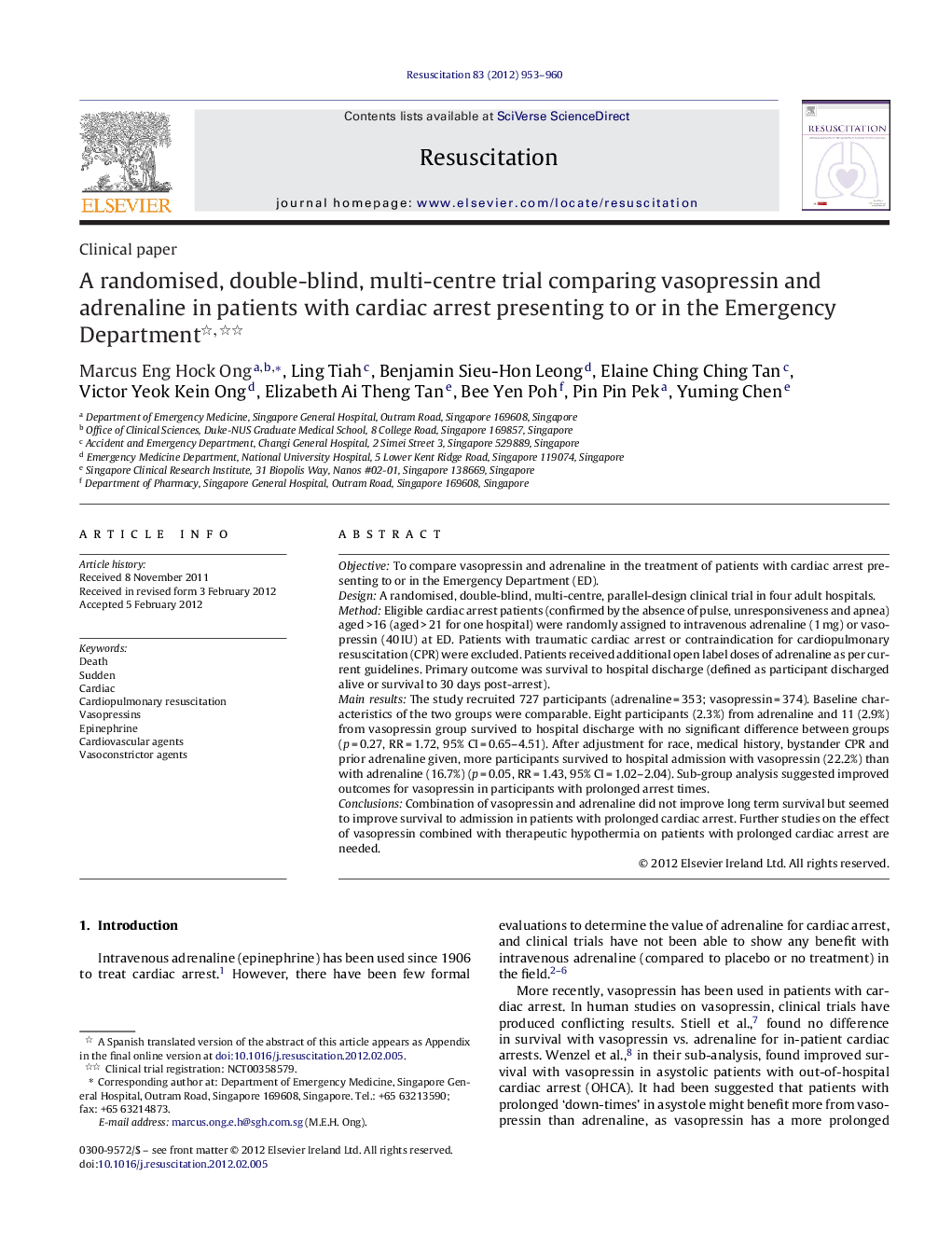| Article ID | Journal | Published Year | Pages | File Type |
|---|---|---|---|---|
| 3009009 | Resuscitation | 2012 | 8 Pages |
ObjectiveTo compare vasopressin and adrenaline in the treatment of patients with cardiac arrest presenting to or in the Emergency Department (ED).DesignA randomised, double-blind, multi-centre, parallel-design clinical trial in four adult hospitals.MethodEligible cardiac arrest patients (confirmed by the absence of pulse, unresponsiveness and apnea) aged >16 (aged > 21 for one hospital) were randomly assigned to intravenous adrenaline (1 mg) or vasopressin (40 IU) at ED. Patients with traumatic cardiac arrest or contraindication for cardiopulmonary resuscitation (CPR) were excluded. Patients received additional open label doses of adrenaline as per current guidelines. Primary outcome was survival to hospital discharge (defined as participant discharged alive or survival to 30 days post-arrest).Main resultsThe study recruited 727 participants (adrenaline = 353; vasopressin = 374). Baseline characteristics of the two groups were comparable. Eight participants (2.3%) from adrenaline and 11 (2.9%) from vasopressin group survived to hospital discharge with no significant difference between groups (p = 0.27, RR = 1.72, 95% CI = 0.65–4.51). After adjustment for race, medical history, bystander CPR and prior adrenaline given, more participants survived to hospital admission with vasopressin (22.2%) than with adrenaline (16.7%) (p = 0.05, RR = 1.43, 95% CI = 1.02–2.04). Sub-group analysis suggested improved outcomes for vasopressin in participants with prolonged arrest times.ConclusionsCombination of vasopressin and adrenaline did not improve long term survival but seemed to improve survival to admission in patients with prolonged cardiac arrest. Further studies on the effect of vasopressin combined with therapeutic hypothermia on patients with prolonged cardiac arrest are needed.
